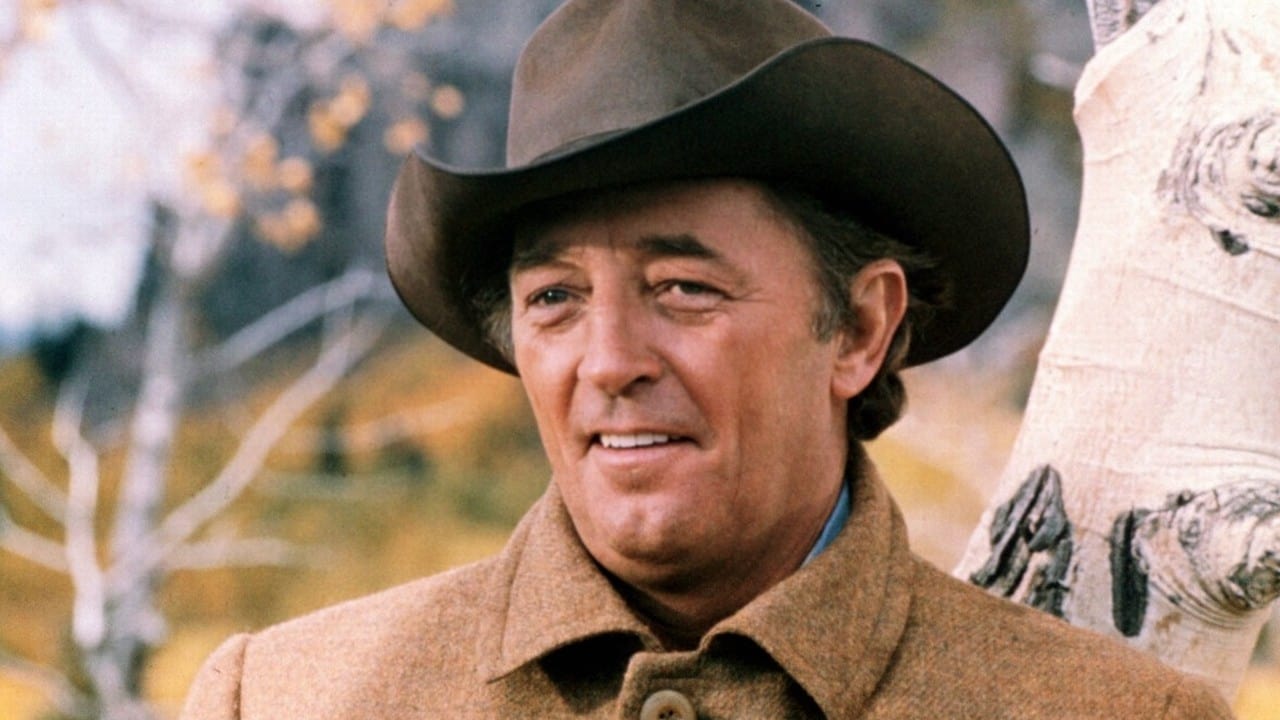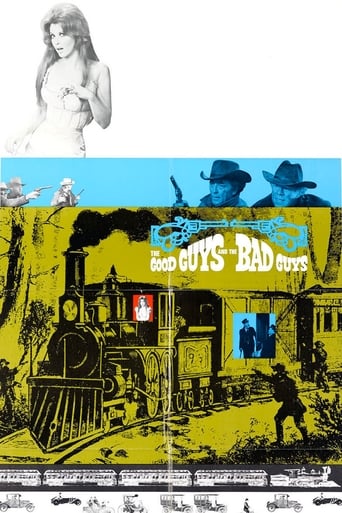

Retired US Marshal James Flagg (Robert Mitchum) gets news of his old nemesis outlaw John McKaye (George Kennedy). He tries to warn the town of Progress but he's sent packing instead by slimy Mayor Wilker (Martin Balsam). He tracks down McKaye who is only hanging on to a robbery gang led by Waco. He captures McKaye but the mayor dismisses him. When the gang positions themselves to rob the incoming train, the mayor recruits Flagg to the rescue with McKaye's help.These are great veteran actors and they give me hope. There is an interesting idea of a grizzled lawman teaming up with a worn down villain. I don't really like the mayor's idiocy. The movie could have gone down a grittier, darker path but it chooses to be a wacky comedy. It's not the best choice. The chemistry between Mitchum and Kennedy does keep this on the tracks but only barely.
... View MoreBurt Kennedy wrote some curiously interesting Westerns for director Otto Boetticher and star Randolph Scott in the 50s. As a director, Kennedy was no better than routine. Of course it's hard to enliven retrograde Westerns like this one, or like John Wayne's late "The Train Robbers." Serious Westerns were declining in popularity because the television schedule was full of them and because by the time this one was released the turmoil was no longer on the plains of Texas but on the streets of New York. Three years later, "Dirty Harry" would make the transfer clear.The Westerns were ripe for ridicule and they came in for their fair share -- "Butch Cassidy and the Sundance Kid," "Cat Ballou." "The Good Guys and the Bad Guys", after introducing a theme involving the obsolescence of bandits and gunfighters, dismisses it and turns into an attempt at comic farce. It doesn't work because it's simply not funny enough.Aging good guy Mitchum and aging bad guy Kennedy -- neither of whom looks particularly aged -- meet and team up to foil a train robbery. The train -- un-held-up -- roars through the station at the town of Progress and the bandits and the entire town race after it, bullets flying, a light-hearted gallop in the musical score. Wagons fall apart and spill their occupants all over. More than one wagon. Several wagons fall apart, wheels flying everywhere. Does anyone think that, in itself, is amusing? Maybe kids who have never seen a movie before. To an adult it looks more like desperation. The locomotive must necessary crash over a cliff taking several empty cars with it.Not to demean the cast. Both Mitchum and Kennedy do fine in their roles, as well as can be expected. Two of the Carradines have small roles, and it's great to see Marie Windsor again, Queen of Noir. Nois Nettleson does well in a small part too, and she's quite handsome.But after reducing the broth, there's nothing much to see here folks. Move along now.
... View MoreThe Good Guys and the Bad Guys is directed by Burt Kennedy and written by Dennis Shryack. It stars Robert Mitchum, George Kennedy, Martin Balsam, David Carradine, Tina Louise, Lois Nettleton and Douglas Fowley. A Panavision/Technicolor production, music is by William Lava and cinematography by Harry Stradling Jr.The town of Progress and Marshal Jim Flagg (Mitchum) learns that old foe John McKay (Kennedy) is about and robbery is soon to follow. However, Jim has difficulty convincing Mayor Wilker (Balsam) that any thing is up, the Mayor apparently more concerned with bed hopping and feathering his own political nest. So when Wilker prematurely retires Jim, sticking one of his lap-dogs into the role of Marshal, Jim sets about doing his own investigation. Pretty soon both Jim and John, one time enemies on either side of the law, find that both of them are out of time with an ever changing West.Amiable. Burt Kennedy's film doesn't have the best of reputations, seemingly the blend of comedy and drama not teasing out much interest from the Western enthusiasts. It's true enough to say that the main theme, that of the changing West and two men finding themselves relics of the time, is ultimately playing second fiddle to the frivolity, while the finale tips over into over zealous slapstick farcery, yet Kennedy and Shryack imbue the picture with a genuine love of the genre. The director lets the pairing of Mitchum and Kennedy unfurl naturally, whilst also giving Balsam license to have a great time, thus all key performers are ever watchable. Scenic delights await within as Chama and Silverton provide location oomph, and the action quotient is in good supply.Disposable for sure, but fun while it's on. 6.5/10
... View MoreIf your westerns Must be more along the lines of The Unforgiving or High Plains Drifter then The Good Guys and the Bad Guys is not for you.But if you Love westerns like Support Your Local Sheriff and Silverado then you will love this movie!The Good Guys and the Bad Guys is just plain old Fun! Robert Mitchum and George Kennedy are great together. Martin Balsam's Mayor is like an earlier version of Mel Brook's The Governor in Blazing Saddles.Why the don't make westerns like this anymore is beyond me. But then again why they don't make westerns at all is really beyond me.Whenever I come across this movie on TV I stop to watch it. You cant go wrong with The Good Guys and the Bad Guys :) .
... View More